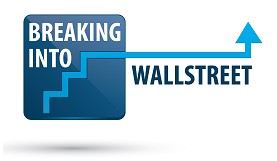 I have a confession: I failed the CFA Level II exam the first time I sat for it. It sucked. Like, really bad. Really, really bad. Back then, they only gave the CFA Level II exam once per year, so I had to wait until the next June to retake it. Today, more dates are available to take the exams, but the painful lessons I learned from my journey through the CFA program are still applicable today if you want to pass the CFA exams.
I have a confession: I failed the CFA Level II exam the first time I sat for it. It sucked. Like, really bad. Really, really bad. Back then, they only gave the CFA Level II exam once per year, so I had to wait until the next June to retake it. Today, more dates are available to take the exams, but the painful lessons I learned from my journey through the CFA program are still applicable today if you want to pass the CFA exams.
To set the stage for my failure, I started a new job as an equity analyst after getting my MBA and had just passed Level I in December. For many years, Level I was given in December and June, while Levels II and III were only offered in June. Level I was easy to pass as I liken it to an undergrad finance degree, which meant I had all of that curriculum down.
Feeling good after easily passing Level I, I decided to press my luck and register for the Level II exam in June. This is where things took a turn for the worse…
Before I get into the details, we need to first talk about what to expect from the exams at each level. Here is how I can best describe them:
Level I
As noted above, this is the knowledge that any undergraduate finance major should know. That doesn’t mean they don’t have to study, but they will find it much easier than non-finance majors. If you are one of the latter, you will need to study for this and take it very seriously. That said, the pass rate for Level I is usually the lowest of the three levels, but that doesn’t mean it is the most difficult exam.
The pass rate is so low because everybody and their mother, uncle, and best friend’s sister’s boyfriend’s brother’s girlfriend sign up for the Level I exam. Most of these people don’t have a solid understanding of finance fundamentals and think they can just take the exam and suddenly have a career on Wall Street.
We all know this is not true.
Level II
This is where things start to get serious. If Level I is like an undergraduate finance degree, then Level II is like a master’s level finance degree. And when I say master’s, I don’t mean an MBA. This level is more like what a future Ph.D. student would cover on their way toward a doctorate.
I went to Level II for the first time sleep-deprived from having a newborn baby at home, along with a severe sinus infection the week of the exam. None of this was conducive to taking a difficult exam that covers material a mile wide and an inch deep.
I will never forget one of the item sets I completely whiffed on that day. It was a set of questions about options on bond interest rates. Not the prices of the bonds but rather the yields. This meant you had to layer derivative math on top of bond math. Good times! Needless to say, my brain short-circuited on that question.
Note that the pass rate for Level II is typically a bit higher than Level I, but that’s because Level I weeds out about half the test takers.
Level III
Level III is where the first two levels come together to give you an attempt at applying the principles learned in the real world. Nothing can replicate knowledge gained from world experience, but at least they try to weave it into the program. I somewhat liked this level, but I know people who hated it. Your mileage may vary.
This level has a typical pass rate greater than 50%, but the number of people who sit for the exam is usually CFA Exam Pass Rates. This is survivorship bias in action.
How to Pass the CFA Exams
Now that I have sufficiently buried the lede, let’s talk about what you can do to increase your chances of passing the CFA exams. The key to passing the exams is understanding the main problems that led to me failing Level II. The two main problems in not passing the CFA exams are:
- Not allocating enough time to prepare for the exams
- Not utilizing third-party study materials
Time
The rule of thumb is to spend 300 hours studying for each exam. This number came down from the investment heavens and was inscribed on a stone tablet for Benjamin Graham. Seriously, though, I have no idea where the 300-hour number came from, and I have no clue how many hours I studied for each level. The key is to give yourself enough time to get through all the materials without cramming. And by time, I mean spread it out over many months.
Why? Because you cannot cram for any CFA exam, so don’t even attempt it. There is too much material to remember in a short period of time.
Instead, adjust the average time spent studying to your current situation. As a baseline, I would plan to study for 4-6 months. Based on my experience, this is enough time for someone without many distractions.
Circling back to my first attempt at Level II, it’s clear that I left the appropriate amount of time for the average person. Still, I needed a more extended study plan, given that my circumstances limited my daily time to study.
Life will get in the way when you study for the exams, so plan accordingly.
Third-Party Study Materials
I did not use third-party study materials for Level I and passed with flying colors. This gave me a false sense of security that led me not to use any the first time I sat for Level II. This did not work in my favor, so I used some the second time and passed. We all know correlation does not equal causation, but the extra materials helped.
Why? For two reasons. The first is the ability of third-party materials to do a better job of distilling the materials into a more practical, test-passing package. By that, I mean the CFA study materials read more like an academic textbook, and the third-party study guides read more like a CFA cheat code to be used to pass the exam.
Based on this, you might be tempted to skip the CFA materials and head straight to the study guides, but the study guides are so much more valuable once you have read the curriculum first. If you give yourself enough time, there is no reason not to use both.
The mock tests are another essential and underrated aspect of third-party study materials. These are invaluable and need to be used because they are the only way to test (pun unintended) your knowledge before the exam. Not taking practice exams is like an athlete spending all their time in the weight room and not practicing their sport-specific skills before the big game.
This is another reason to give yourself plenty of time to study so you can leave time to take practice exams. In my case, getting a wicked sinus a week before the exam put an end to my homestretch of practice exams and was detrimental to my score.
The Konami Code to Pass the CFA Exams?
The upshot of this might be a little disappointing – there is no shortcut to passing the CFA exams. You have to put in the work. I wish I could give you some hack to pass, but there isn’t one. I have yet to meet anyone who has figured out a hack. Just suck it up and put in the work.
You can make life a lot easier on yourself by spreading the preparation over an extended time and using practice exams to ensure you are game ready on exam day.


